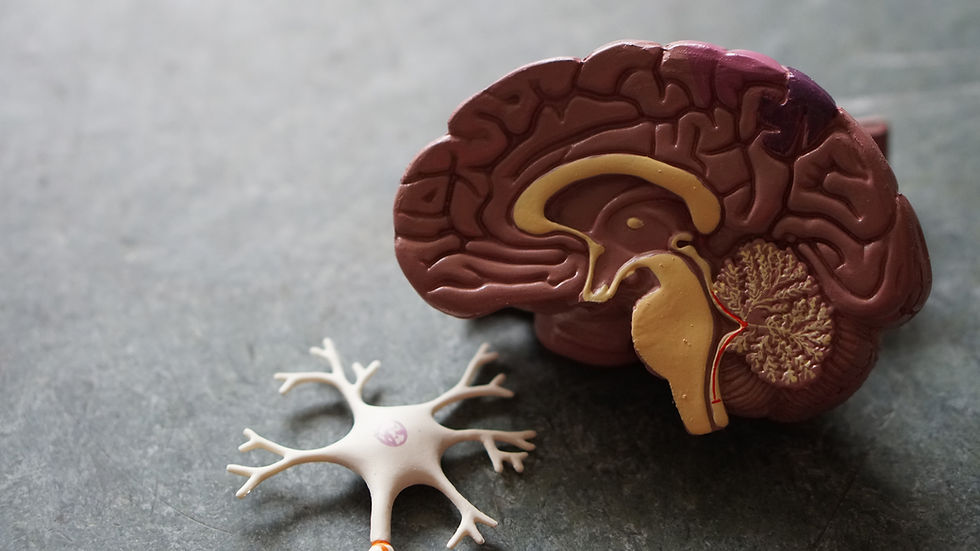You Don't Have to Remember Everything to Heal from Trauma
- andersonabbiek
- Apr 8
- 3 min read

One of the biggest misconceptions about trauma healing is that you need to remember every painful detail in order to heal. Many people believe that if they can just piece together what happened, everything will finally make sense—and they’ll finally feel better.
But here’s the truth: You don’t have to remember everything to heal from trauma. Healing isn’t about unlocking every memory; it’s about learning how to feel safe, present, and whole in your life today.
Why Trauma Memories Can Be Incomplete or Unclear
Trauma isn’t stored in the brain like a clear, chronological story. When we experience something overwhelming, our brain’s survival mode (fight, flight, freeze, or fawn) kicks in. In these moments, the rational part of the brain (the prefrontal cortex) goes offline, and the emotional and survival centers (the amygdala and limbic system) take over.
This can cause:

🧠 Fragmented or blurry memories – You might remember pieces of what happened but not the full picture.
🚫 Memory blocks or gaps – Some experiences may feel completely missing or inaccessible.
🔥 Body memories over verbal memories – You might not remember what happened, but your body reacts to certain triggers as if it does.
This is why some people struggle with unexplained anxiety, emotional flashbacks, or triggers without knowing exactly why. The trauma is stored in the nervous system, not just in the mind.
Healing Without Remembering Everything
If you don’t remember everything about your trauma, that doesn’t mean you’re stuck or incapable of healing. Healing is not about recalling every detail—it’s about regulating your nervous system, shifting emotional patterns, and creating safety in the present.
Here’s how you can heal without needing to remember it all:
1️⃣ Focus on Your Present-Day Triggers & Reactions
Instead of trying to force memories, pay attention to how trauma shows up in your daily life.
🔥 Example: If being around certain people, places, or situations makes you feel anxious, disconnected, or unsafe, that’s a sign your body is holding onto trauma—even if you don’t remember the exact cause.
💡 Healing Approach: Instead of chasing the memory, work on grounding and nervous system regulation techniques that help you feel safe in those moments.

2️⃣ Listen to Your Body’s Signals
Even if your brain can’t recall everything, your body remembers. Trauma is stored in sensations, muscle tension, and automatic responses.
🔥 Example: You feel nauseous or panicked when someone raises their voice—even though you can’t recall a specific moment when yelling hurt you.
💡 Healing Approach: Somatic (body-based) therapy, grounding techniques, and breathwork can help release stored trauma without needing a full memory of what caused it.
3️⃣ Shift the Focus from "What Happened?" to "What Do I Need?"
Instead of trying to force yourself to remember, ask:
🔹 How is my trauma showing up in my life now?
🔹 What emotions or patterns keep repeating for me?
🔹 What helps me feel safe and regulated today?
Healing is about building safety in the present—not reliving every detail of the past.
🔥 Example: You don’t need to remember the exact childhood event that made you struggle with setting boundaries. You can still learn to set and maintain boundaries today without reliving the original wound.
💡 Healing Approach: Cognitive Processing Therapy (CPT), Internal Family Systems (IFS), and EMDR can help shift trauma-related beliefs and responses without requiring full memory recall.
4️⃣ Accept That Healing Is Possible Even With Gaps
Many trauma survivors feel frustrated that they can’t remember everything. They wonder if their memories are real or if healing is even possible without a clear timeline of events.
But healing isn’t about collecting facts—it’s about how you feel, function, and reclaim your sense of self.
🔥 Example: Even if you don’t remember specific childhood neglect, you can still work on rebuilding self-worth, learning self-care, and developing healthy relationships.
💡 Healing Approach: Therapy, journaling, and self-compassion exercises help rebuild trust with yourself—without needing every missing piece of the puzzle.
Final Thoughts: You Don’t Need the Whole Story to Heal
If you’ve been stuck feeling like you can’t heal until you "remember everything," please know this: You are not broken. Your healing is not dependent on perfect memory recall.
What matters most is how you feel in the here and now. The goal of trauma healing is to help you:
✅ Feel safer in your own body and mind
✅ Release fear, shame, and guilt tied to the past
✅ Build relationships based on trust and respect
✅ Create a life where you feel whole and in control
Your healing is real—even if you never remember all the details. 💛
📌 Have you ever struggled with feeling like you "should" remember more? Let’s talk in the comments. ⬇️

Comments